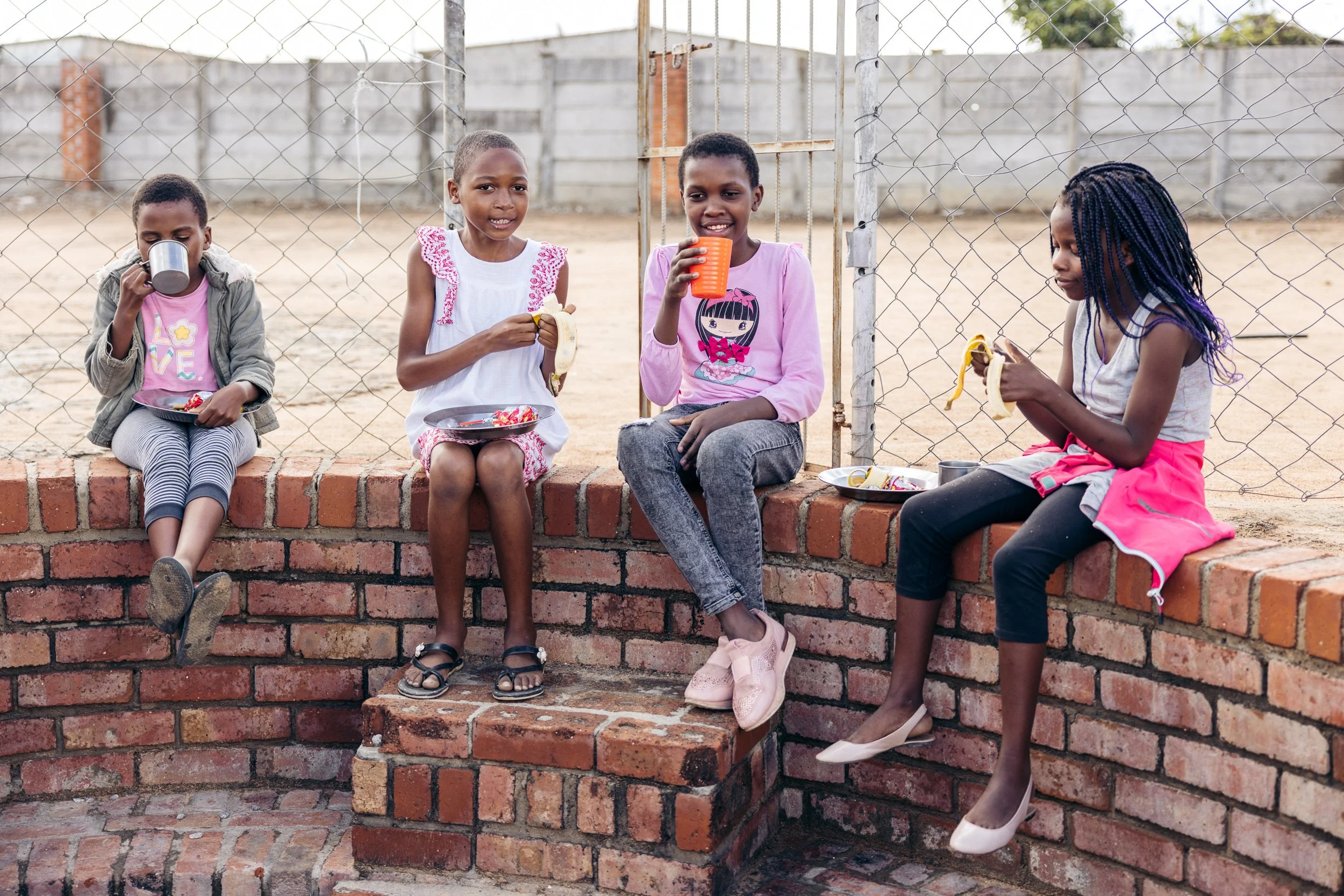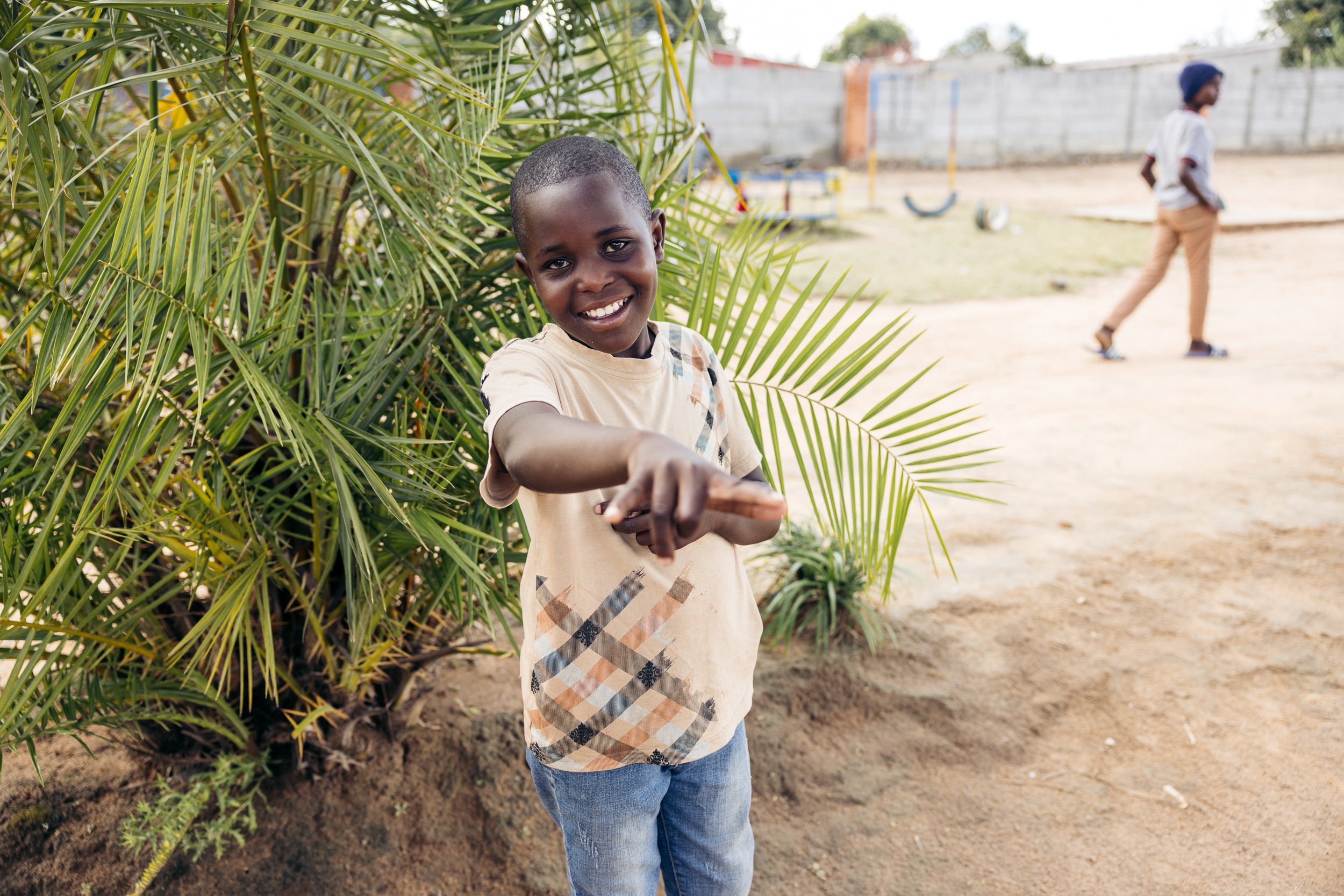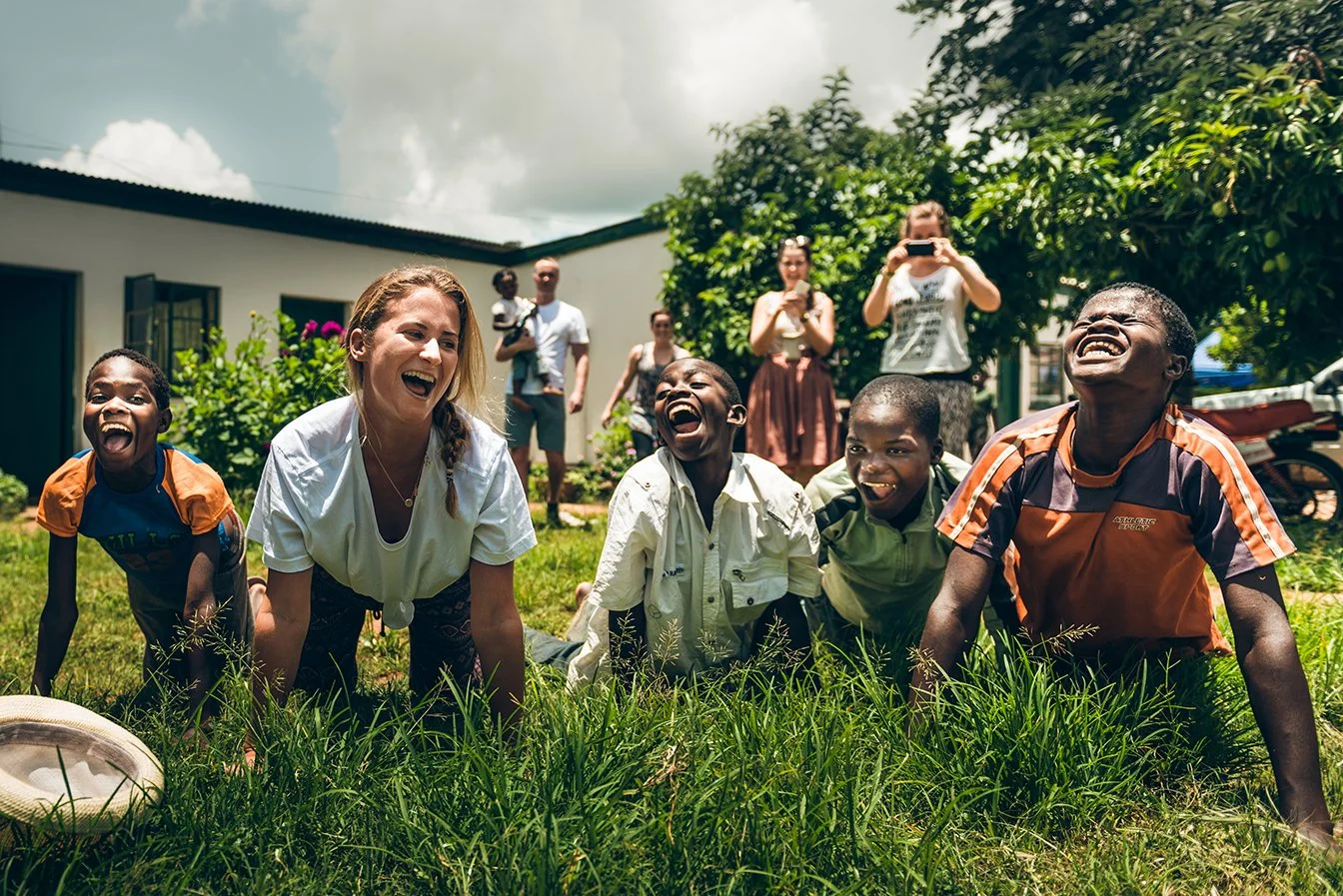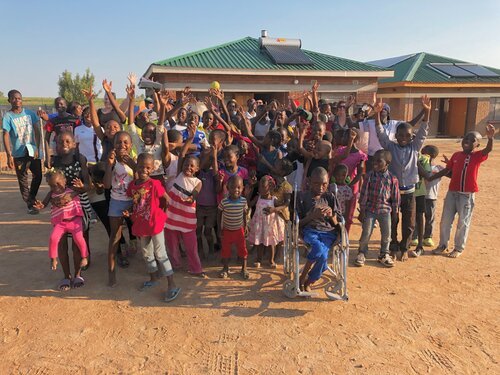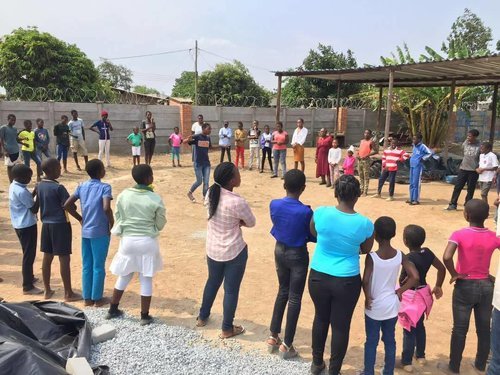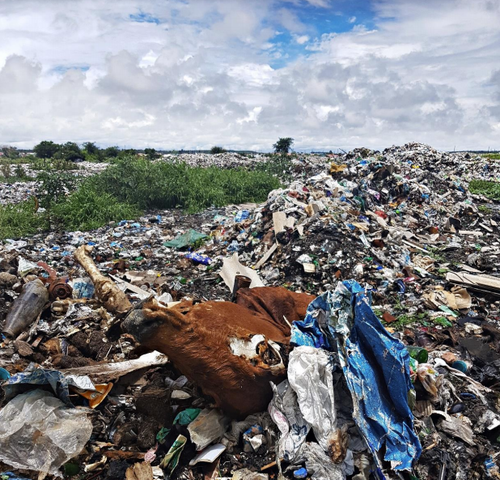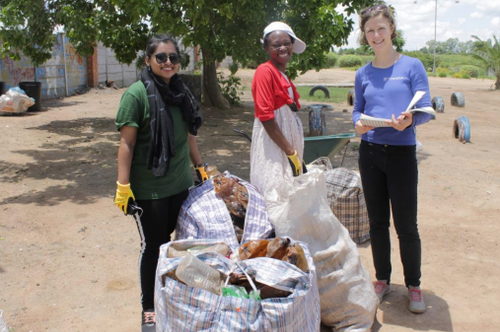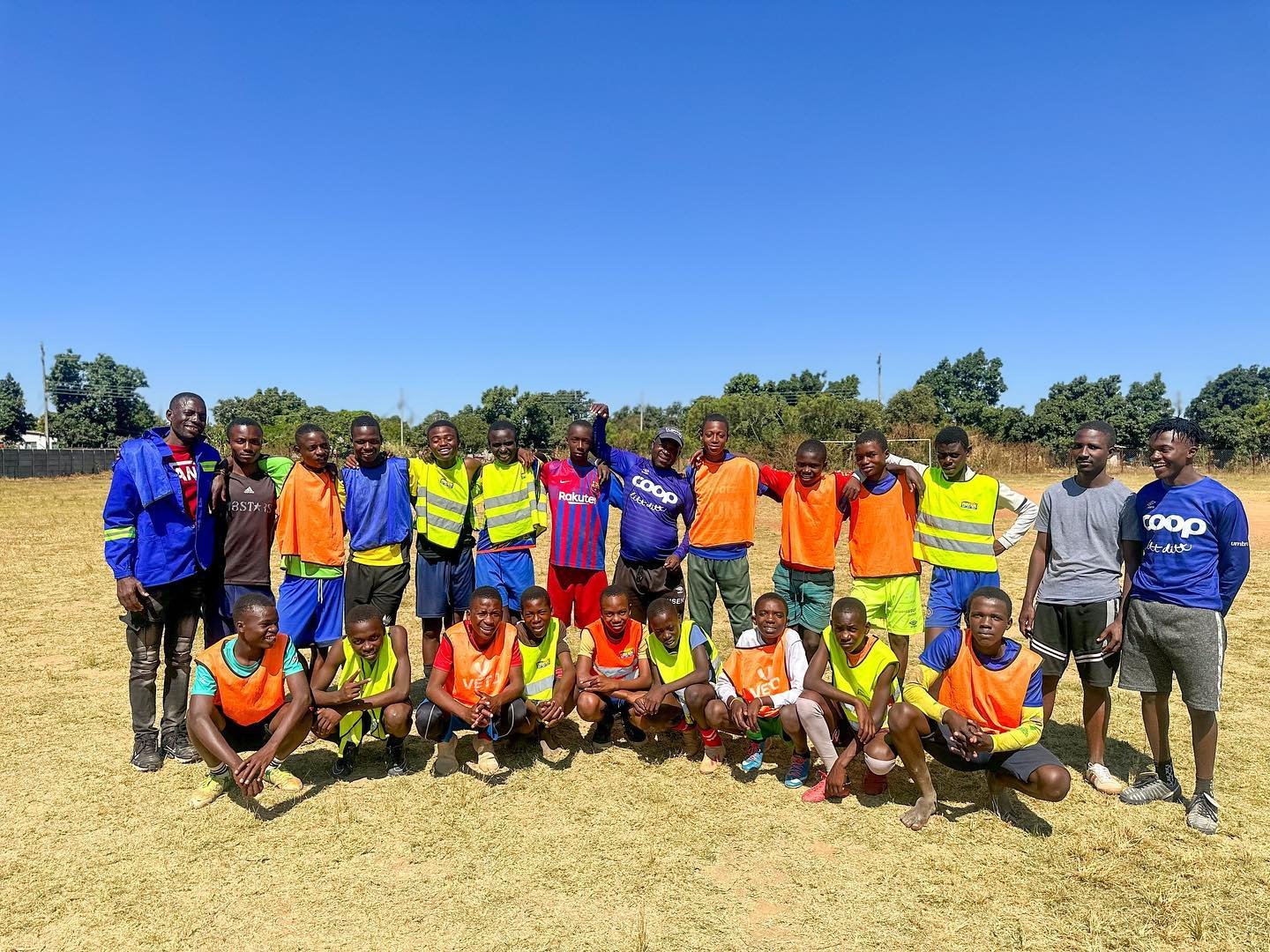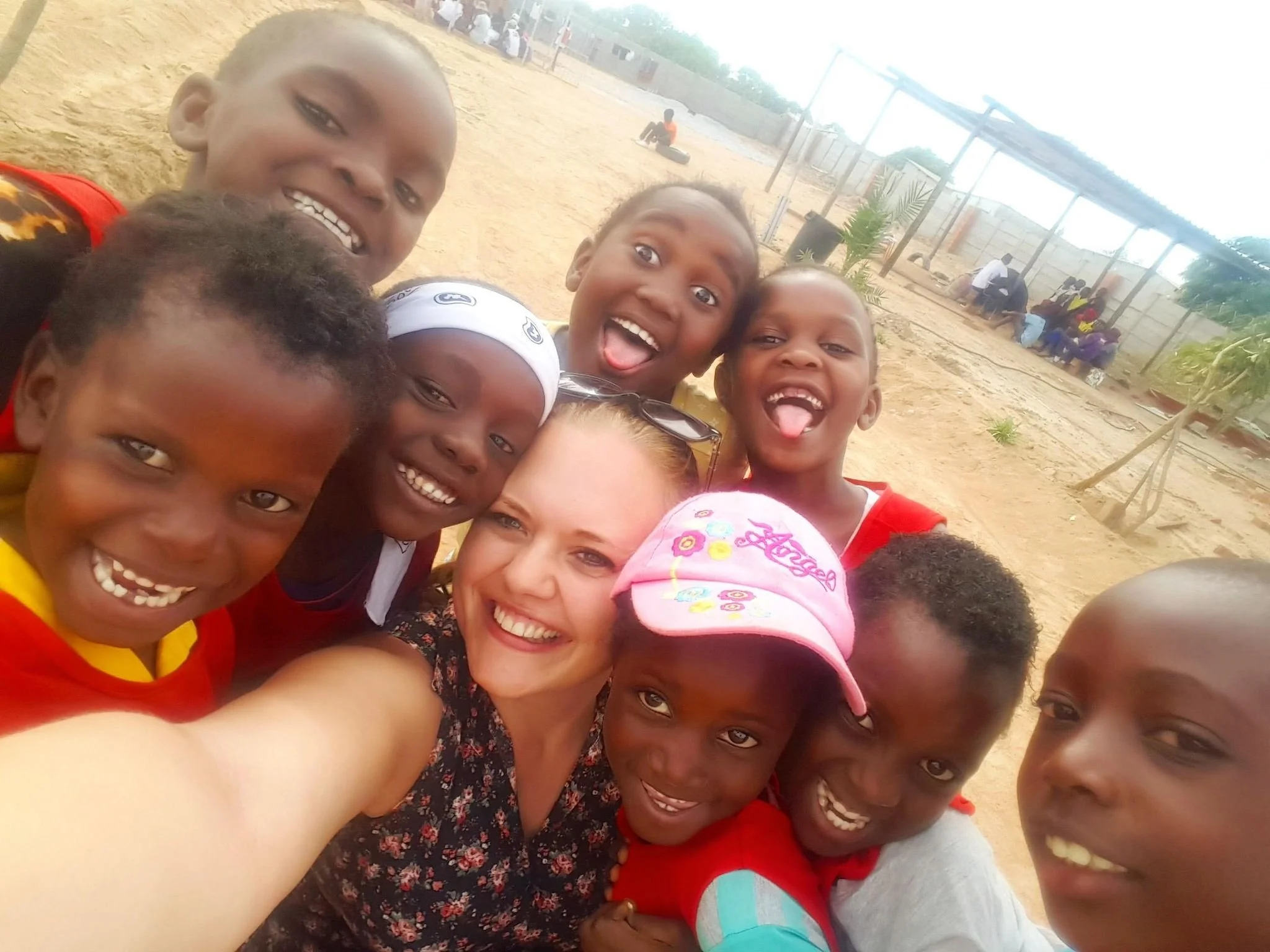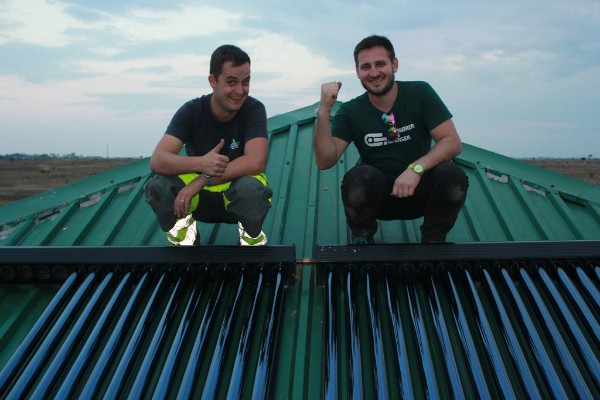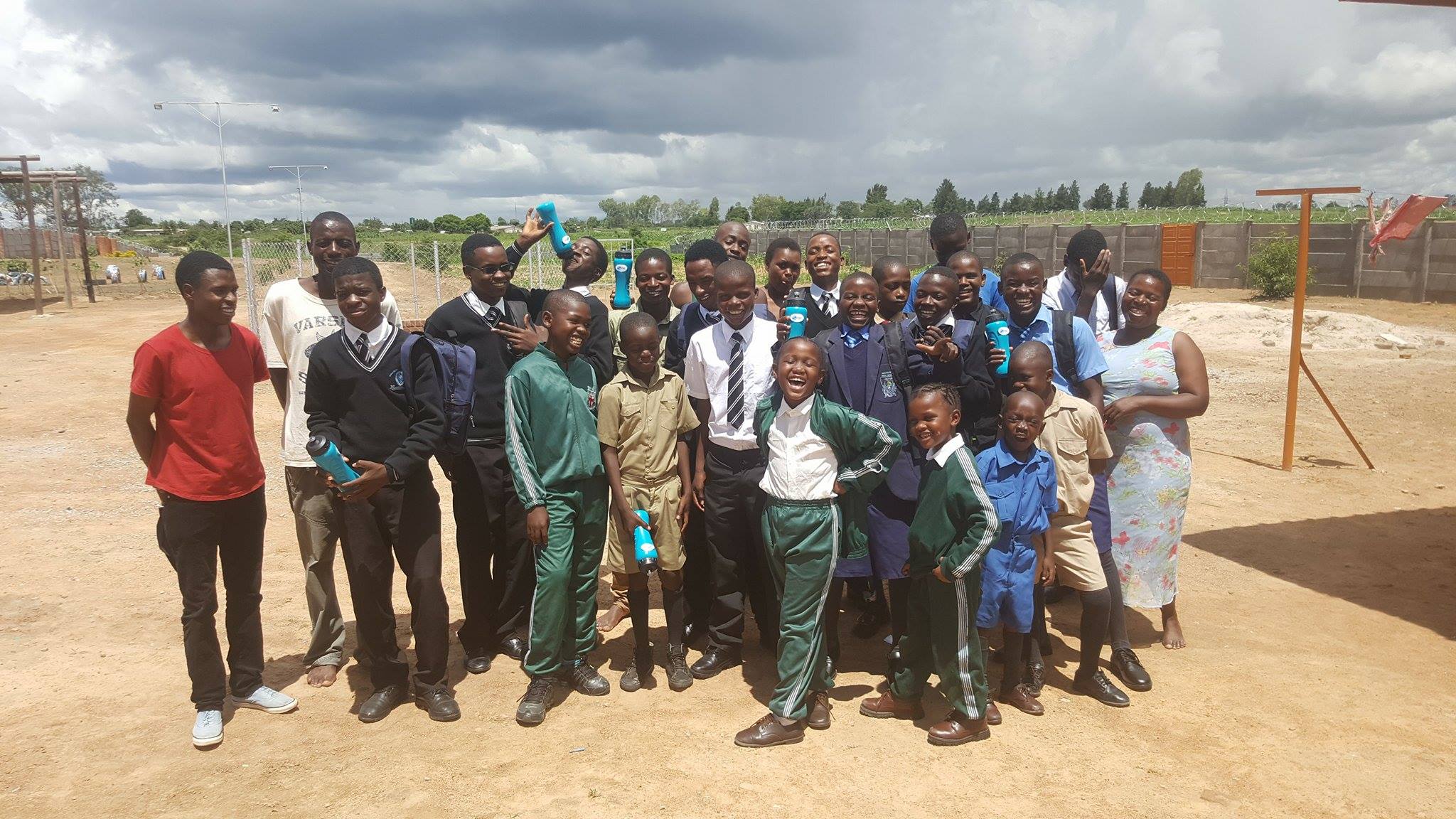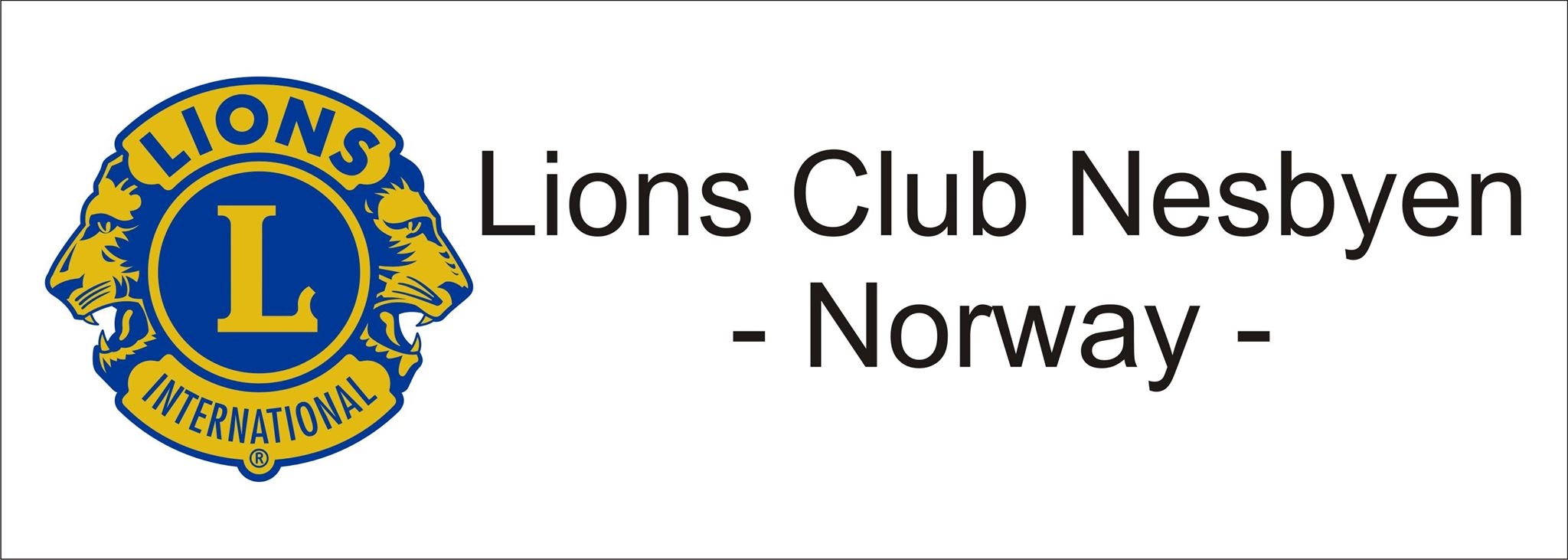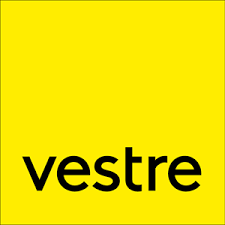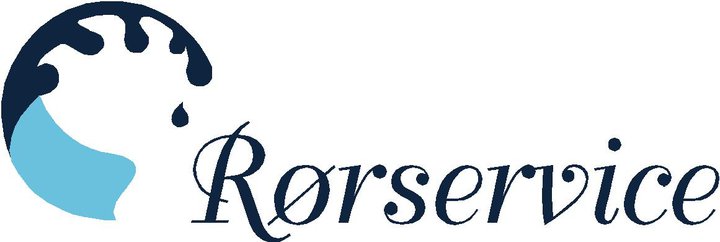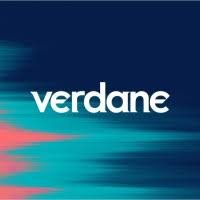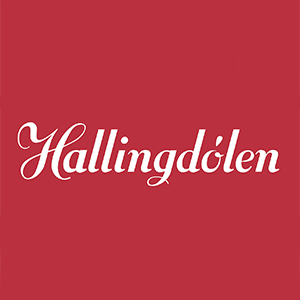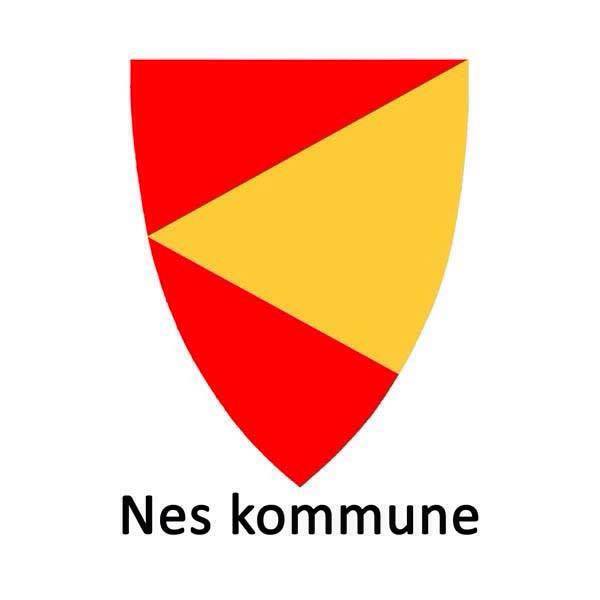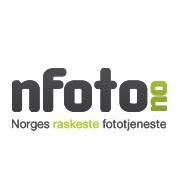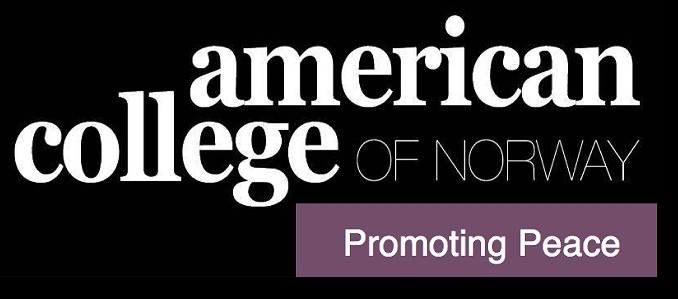The trip to Zimbabwe was full of memories, and a lot of their predictions about hunger and poorness was met. However they experienced so much more than what media is picturing. They were met by warm, welcoming people everywhere, and they saw a joy, happiness and thankfulness which they never seen before. The resut was experiences and memories for a lifetime.
As volunteers they visited different kindergartens, schools and clinics, but it was one place that stood out. In a little white concrete house in Gwerus biggest township, Mkoba, there was about thirty boys divided in four bedrooms and 14 beds. All the children were previously living in the street, and had experienced more than any child should need to. Still, the orphanage were not a sad place to be. It was full of life, happiness and joy from day to evening, and the children had big hopes for their future.
At the orphanage six zimbabweans worked every day without any payment. They also had a drop-in center in town where they gave street children their only daily meal, and the opportunity to clean themselves and relax. Often they fell asleep straight away because they could finally feel safe enough to relax. But everyday was a struggle to get ends to meet.
There were no mattresses at the orphanage, the walls were dirty and the children was sent home from school because of the lacking of school fees payments. When Anita, Thomas and Lene went back to Norway they knew they had to do something. They had experienced firsthand how little it takes to make a difference, and they created an organization back home to support the education. Three months later Midlands Children Hope Project was a reality, and together with 15 sponsors they sent down school fees for 17 children at the orphanage.
Since the first meeting in 2011 the organization has gained more sponsors, taken more children into school, and the responsibilities has grown. In 2014 we bought 5000 square meter land in Mkoba, and in 2015 we had two houses run by solar ready to move in. In 2022 we established the Norwegian trust, Themba Hope Project.
Our main priority ever since the beginning, has always been school fees for the children. We feel the knowledge, motivation and opportunities the children get at school gives them the best chances to create a better future for themselves, especially in a country with 95% unemployment rate. In addition it’s important that the street children, that have lived outside the society for some time, can feel an identity to the local community, and feel good at something. Today we’re sending 153 children at school through Hope-education.
Through more than 10 years of experience the organization has three locations we’re working from:
Drop-in center for streetchildren in the city of Gweru. Here the street children get a daily hot meal, security and care. Through different courses and training programs they gaim important knowledge which helps them build their own future. They get the opportunity to apply for startloans to setup income generating projects.
The orphanage in the township Mkoba. Here we have two children’s homes which can house 20 children and two house mothers. The orphanage is selfsustainable with electricity and water through the solar system. We have a firepit, playground, outdoor gym and football area. In addition we also have a vegetable garden and fruit trees which makes them selfsustainable when coming to fruit and vegetables.
Community center in the township Mkoba. The biggest ongoing project we have today is the establishment of the new community center. This will have a business center with connected sales store. It will have classrooms, offices and health care specially for girls. We will have restaurant area, community garden, seedbank and rainwater collection. In addition we will have a recycling project. In 2022 we bought a 12.133 square meter land for the community center. Just now we’re working with Architects Without Borders and Engineers Without Borders to draw plans, to make sure we create a center which is as environmental friendly, cost efficient and sustainable as possible.
To make everything possible we have a sponsorship program where you donate an amount of your choice to the project. 100% of the donation goes towards the projects in Zimbabwe.


























